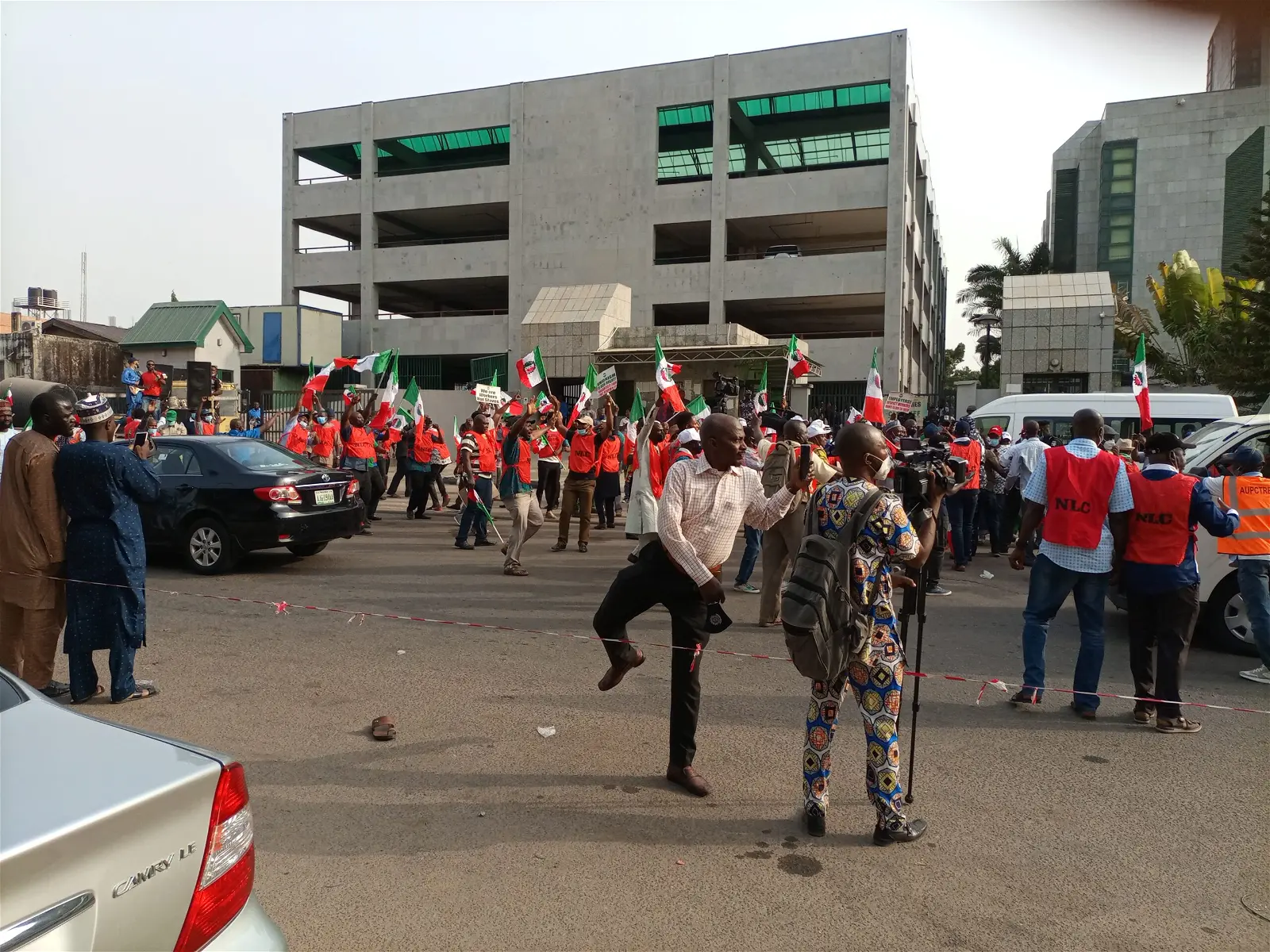
Breaking
Unyielding: NLC Declares Protest Plans as Negotiations Reach Stalemate

In a stunning turn of events, negotiations between the Nigerian Labour Congress (NLC) and the government have hit a deadlock.
The NLC, representing the voice of Nigerian workers, has refused to back down from its demands for better wages and improved working conditions.

As the nation teeters on the brink of a major industrial crisis, the NLC leadership has now declared that they have no choice but to resort to protest action to press their demands.
This blog post delves into the root causes of the impasse, the significance of the NLC’s unwavering stance, and the potential consequences of a large-scale protest.
Stalemate in Negotiations
For weeks, representatives from the NLC and government officials have been engaged in talks aimed at resolving long-standing issues affecting the workforce.

The NLC has been voicing concerns over the rising cost of living, inflation, and the need for a substantial increase in the minimum wage. Despite the government’s assurances that it is working to address these concerns, concrete actions have been lacking, leading to the talks’ eventual collapse.
The Significance of the NLC’s Stand
The NLC’s insistence on protest reflects the mounting frustration among workers and the broader population with the government’s perceived inaction.
Many believe that peaceful negotiations have not yielded the desired results in the past, and the NLC’s determination to take a more assertive approach signifies their commitment to effecting real change.
Workers’ Plight and Rising Inequality
Nigeria, like many developing nations, grapples with increasing economic inequality. While the country boasts significant natural resources and a growing economy, a substantial portion of the population remains mired in poverty and struggling to make ends meet.
The NLC argues that this is exacerbated by low wages, lack of job security, and poor working conditions, contributing to the growing wealth gap.
READ ASLO: How Much is Dollar to Naira in Black Market Today, August 1, 2023
Potential Consequences of Protest
If the NLC proceeds with its planned protest action, it could have significant implications for Nigeria’s economy and political landscape.
Mass strikes and demonstrations may disrupt key sectors, affecting industries, transportation, and public services. As public sentiment swells, the government will be under immense pressure to find a resolution and avoid further escalation.
Government Response
In response to the NLC’s unwavering stance, the government faces a critical juncture. Ignoring the demands of the workers could lead to prolonged unrest, eroding public trust and undermining political stability.
On the other hand, acceding to all of the NLC’s demands may strain the nation’s fiscal resources and impact its long-term economic outlook.
What You Should Know
As talks between the Nigerian Labour Congress and the government falter, the country stands at a crossroads.
The NLC’s insistence on protest signifies a growing determination to secure a better future for Nigerian workers and combat rising economic inequality.
The government must now tread carefully, seeking a balanced solution that addresses the legitimate concerns of the workforce while safeguarding the nation’s economic stability.
Only through meaningful dialogue and genuine efforts to effect change can Nigeria find a path towards a more equitable and prosperous future for all its citizens.













